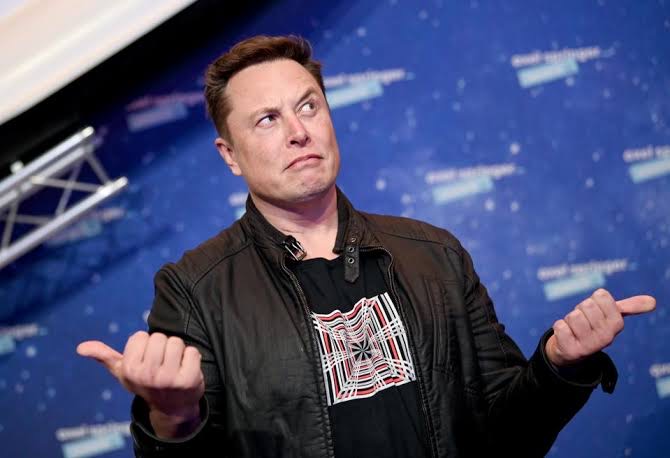Tesla's stock soars after the company's fourth-quarter deliveries set a new record.
- Posted on January 04, 2022
- Editors Pick
- By admin

Tesla recently released its fourth-quarter report on vehicle production and deliveries for 2021, and it easily outperformed analyst expectations.
Tesla delivered 308,600 electric vehicles in the fourth quarter and 936,172 throughout the year.
According to FactSet's consensus estimate, Wall Street analysts expected Tesla to deliver 267,000 vehicles in the fourth quarter and 897,000 throughout 2021.
Tesla announced on Sunday that it delivered 308,600 electric vehicles in the fourth quarter of 2021, exceeding both the company's previous quarterly record and analyst expectations. During the same time period, the automaker produced a total of 305,840 fully electric vehicles.
Tesla delivered 936,172 vehicles in total, an increase of 87 percent from 2020, when it reported its first annual profit on 499,647 deliveries.
Tesla delivered 241,300 vehicles in the third quarter of 2021, the highest quarterly total in the company's history.
According to FactSet's consensus estimate, Wall Street analysts expected Tesla to deliver 267,000 vehicles in the fourth quarter and 897,000 throughout 2021.
Deliveries are the closest approximation of Elon Musk's electric car company's reported sales.
Tesla combines delivery figures for its more expensive Model S and X vehicles with those for its less expensive Model 3 and Y vehicles. The company does not disclose regional sales or production figures.
Tesla's flagship Model S sedan and Model X falcon wing SUV deliveries combined to account for just under 3% of total Tesla deliveries in 2021. Deliveries of Model 3 and Model Y totaled 296,850 in the fourth quarter of 2021 and 911,208 for the full year.
Tesla manufactures the Model 3 and Model Y in Shanghai and Fremont, California, but only the Model X and S in Fremont.
Ignoring shortages
Musk lamented supply chain issues that made it difficult to obtain enough microchips and other unspecified parts at Tesla's 2021 annual shareholder meeting.
Tesla was able to increase vehicle deliveries during the second year of a global coronavirus pandemic by ramping up production at its first overseas factory in Shanghai and by making technical changes to the cars it produces in Fremont, California, to eliminate certain components entirely.
Notably, Tesla announced in May that it would discontinue the production of radar sensors in Model 3 and Model Y vehicles sold in North America. Tesla's driver assistance features, such as traffic-adjusted cruise control and automatic lane keeping, are now enabled by a camera-based system in those vehicles.
Aiming forward
Musk has stated that he intends to double Tesla's annual vehicle sales to 20 million over the next nine years. Tesla is on track to begin production of the Model Y crossover this year at its new factory in Austin, Texas. Following that, it intends to open another factory in Brandenburg, Germany.
The company's headquarters were recently relocated to Texas. Tesla officially announced the plan in early December, after the CEO announced it in October.
Musk wrote last month on Twitter, where he has approximately 68.4 million followers, "Giga Texas is a $10 billion+ investment that will generate at least 20k direct and 100k indirect jobs over time." Tesla intends to invest $1.6 billion in the Austin, Texas, factory's initial phase, according to public filings.
Despite its progress and ambitions in Texas, Tesla has postponed plans to begin mass production of its Cybertruck, an angular pickup truck, until 2023. Additionally, the company's Semi and redesigned Roadster are still in development.
Prospects for the industry
The company now controls the majority of battery electric vehicle sales in the United States and much of the rest of the world. However, it is expected to lose overall market share as competitors introduce their own fully electric vehicles.
Toyota, for example, recently announced a $35 billion investment to develop 30 battery-electric vehicles by 2030. Rivian recently began shipping its all-electric pickup truck and SUV. And Ford has ceased taking reservations for its electric pickup truck, the F-150 Lightning, after receiving 200,000 orders.
The company does not break down sales by geography, but the United States and China are the company's largest markets, with the Model 3 and Y accounting for the majority of sales. Tesla currently manufactures the Model S, X, 3, and Y at its Fremont, California, factory, and the Model 3 and Y at its Shanghai plant. Tesla will increase production capacity in 2022 with the addition of two new factories in Austin, Texas and Berlin.
Tesla's sales are expected to continue to grow in lockstep with overall electric vehicle demand, which is being fueled in part by climate regulation.
In an effort to reduce air pollution caused by transportation, states including California and New York have followed the lead of several European countries and cities by setting a deadline for the sale of the majority of gas-powered vehicles.
By 2030, approximately 24% of new vehicles sold worldwide are expected to be fully electric, according to Alix Partners' forecasts.
Musk has promised that on Tesla's next earnings call, he will provide an update on the company's new product plans.


Be the first to comment!
You must login to comment